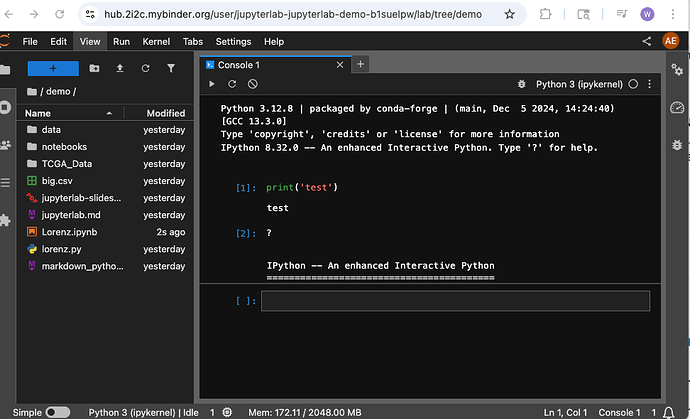I believe so. See both answers here.
Also, you’ll get IPython by connecting to a Console kernel on the remote machine. (In fact, that is why I linked to that particular first answer, because it features the ‘New Console for Kernel’ choice.)
Or even when directly using Jupyter, Console essentially equals IPython. I can guide you through seeing that in action without touching your own machine or signing up for anything or logging into anything. Go here and click the ‘launch binder’ badge just down bellow the many other badges. A remote Jupyter session will spin up. Click the blue ‘Plus’ button and select from the Launcher page ‘Python 3 (ipykernel)’. You’ll see when the console comes up it features IPython. Here is a screenshot:
*I changed to theme to JupyterLab Dark before I took the screenshot to emphasize it is IPython console.
Other related answers & resources to look at:
- python - Connecting to a remote IPython instance - Stack Overflow
- How do I connect to a remote kernel via the Jupyter Notebook Server API? · Issue #508 · jupyter/jupyter_client · GitHub
- Jupyter Kernel Gateway — Jupyter Kernel Gateway 3.0.1 documentation
- Single-user setups for local client & remote kernel - #8 by kevin-bates
- The more standard way for those not looking to use local software to connect to the remote machine/kernel: How to run a jupyter notebook through a remote server on local machine? - Stack Overflow
